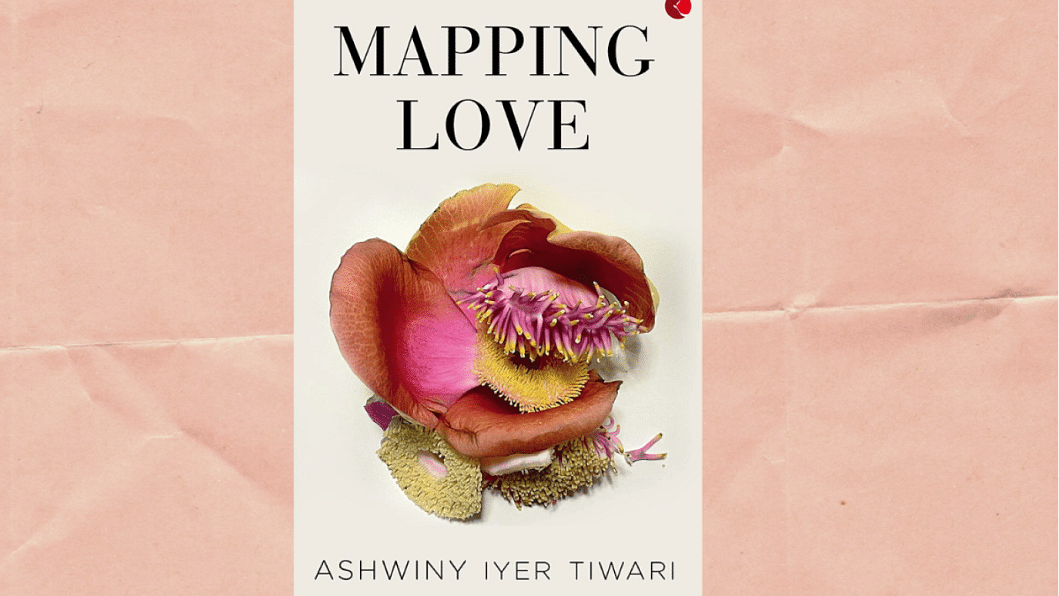Ashwiny Iyer Tiwari’s ‘Mapping Love’: A roller coaster ride of love, loss, and longing

"…. That nature has a way of telling us stories about various lives. About trials and turbulences. About giving and receiving. About living and letting others live. About day and night. About the mood, it brings in. About being still and just letting go. About staying in the present as if there is no tomorrow."
Capturing the truest essence of these words, Mapping Love (Rupa Publications India, 2021) is an introspective novel written by prominent Indian filmmaker Ashwiny Iyer Tiwari.
Oorja, as her name suggests, is a bright young girl who is the main protagonist of the story. The novel begins with her travelling back to India after her mother's demise. She reaches home only to find her father missing. The rest of the book is a journey of love, healing, and rediscovery of her own self.
Ashwiny Iyer Tiwari is known to create strong female characters who are independent and free-spirited. This is reminiscent in her films—be it the vivacious Bitti Mishra (played by Kriti Sanon) of Bareilly Ki Barfi (2017), the invincible Jaya Nigam (Kangana Ranaut) of Panga (2020), or the passionate Chanda (Swara Bhaskar) of Nil Battey Sannata (2015)—and it is now apparent even in her writing. Each of these women is strong, determined, and knows what she wants from life. They are challenging norms and questioning age-old practices, sometimes simply by following their hearts.
As one reads Mapping Love, Oorja initially feels like a mystery waiting to unfold. Coming home after living in a foreign land for a long time is not easy. On top of that, the occasion of Oorja's return is not a happy one. The hints at a dysfunctional family and her less-than-ideal relationship with her father act as powerful agents in piquing the reader's interest.
The search for her father takes Oorja to various places, from the banks of Benaras to the jungle at the Jim Corbett National Park, Uttarakhand, the voyage of demystifying her life getting curiouser with every page. With only a piece of paper as a hint and an absolute stranger who seems to hold the key to it all, the suspense builds. Along with the geographical locations, Tiwari makes one travel to long forgotten or buried places in our hearts.
Here, we see Oorja mature into a woman who is now recognizing her responsibilities as a daughter. She is also now able to see her father as an individual first and then in the other roles he plays in his life—that of a son, husband, and father. It is only towards the end that you see Oorja, too, as a friend, a colleague, a neighbour, or perhaps even yourself. She feels relatable and that makes her vulnerabilities poignant.
Throughout the narrative is also the fundamental need for space and respect. Boundaries are essential for every individual to thrive and grow. It is a beautiful reminder that when you start doing things for yourself, you are also able to do it for others. Tiny poems between the chapters read like a sigh of relief for every reader before they dive deep into another abyss of emotions, and the language used by Tiwari is metaphorical and philosophical, which can at times feel tiring, but is also comparable with the process of inner healing. The book uses some interesting analogies between the human and the animal world—while the lioness goes out to hunt as the lion takes care of cubs, a shared responsibility exists in the world of elephants. Using this analogy, Tiwari does not shy away from emphasizing how women have been brainwashed by society into accepting certain roles to be meant for them. Through Oorja's story, Tiwari holds a mirror to the society and its patriarchal norms. Weaving a tapestry of emotions that include dysfunctional families, grief, trauma, and more, she sweeps the reader into a whirlpool of feelings. Reading this book feels like a cleansing process of its own.
Tiwari depicts healing through the changing perspectives in this story. Oorja's ability to see her father as an individual, and her own ability to see herself for that matter, with flaws and scars included, and still desire to love and be loved, are beautiful connotations of healing.
Namrata is a writer, a digital marketing professional, and an editor at Kitaab literary magazine.

 For all latest news, follow The Daily Star's Google News channel.
For all latest news, follow The Daily Star's Google News channel. 








Comments